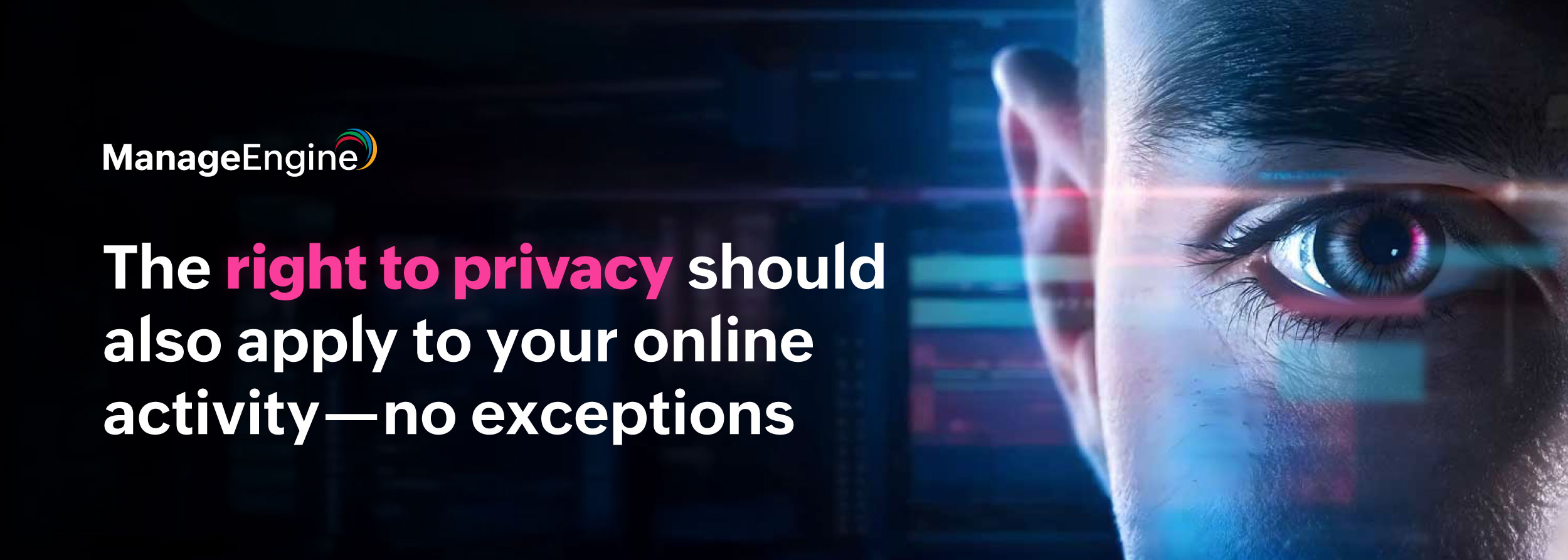The right to privacy should also apply to your online activity—no exceptions

Most of us already know we’re being tracked every time we go online—cookies this, permissions that. You’re basically forced to accept some level of tracking just to use the internet. The good news? There’s been plenty of pushback against what many rightly see as weak privacy safeguards—both from governments and the public.
But for all the progress we’ve made, we’re still only scratching the surface. True online privacy is a long way off. And with technology evolving at full throttle, privacy laws and protections need to keep up or risk being left behind—as has been the case until very recently.
The all-seeing eye (Big Brother is watching you)
How would you feel if every conversation you have at home, every single phone call you make, every letter you send, was being tracked constantly? Think about it: How far removed from such invasive surveillance is online activity tracking really?
Of course, if probable cause can be established, the government and law enforcement authorities can gain special permission to monitor a person of interest. But the key phrase here is special permission. Surveillance is meant to be the exception, not the rule. And it shouldn’t be the default online, either. No one wants to live in a surveillance state under the tyrannical regime of Big Brother, after all.
The right to privacy is a fundamental human right. It’s enshrined in many domestic laws and even in the Universal Declaration of Human Rights. As long as you’re not breaking the law, your privacy deserves respect—regardless of who you are. Privacy isn’t a privilege. It’s a right. And it should be the default expectation, both online and offline.
The real cost of convenience
Despite the progress we’ve made, privacy is still treated as an afterthought by many service providers. We still find ourselves forced to “choose” to give up privacy, especially when using free services.
You may have heard of the Cambridge Analytica scandal, where a third-party was able to harvest data from over 50 million Facebook accounts to create targeted political advertisements in the run up to the United States presidential elections. While the parties involved initially denied any wrongdoing, Meta later agreed to pay a $725 million settlement in a class-action lawsuit to resolve claims over its improper handling of user data by third parties like Cambridge Analytica.
Several social media platforms also share user information with third parties. This information is generally used to create personalized experiences, and these platforms are mostly transparent about it in their privacy policies. But let’s be honest—how many of us actually read those long, jargon-heavy documents designed more to meet legal requirements than to be understood? I know I don’t.
Our privacy is non-negotiable, and data sharing with third parties should become a thing of the past if companies and regulators are serious about upholding privacy rights in today’s digital age.
Keep your prying eyes away from my data
I, for one, am glad that data privacy is taking center stage in the conversation surrounding tech. The passing of landmark data protection acts like the GDPR and the CCPA represents a significant leap towards individual data sovereignty. It's encouraging that major economies around the world have followed suit, emulating the European Union's push towards true data privacy.
This is already paying off, with governments and even big tech giants clamping down on most forms of online tracking. For example, Apple’s Safari and Mozilla’s Firefox now block third-party cookies by default, and Google’s Chrome has opted for a user-choice-based approach.
The issue of online privacy can only be solved through stronger legislation, and it’s reassuring to see governments shining a spotlight on the invasive practices of big tech. If this trend continues, the future of privacy doesn’t look as bleak as it once did—refreshing news in an era dominated by increasingly dystopian headlines.